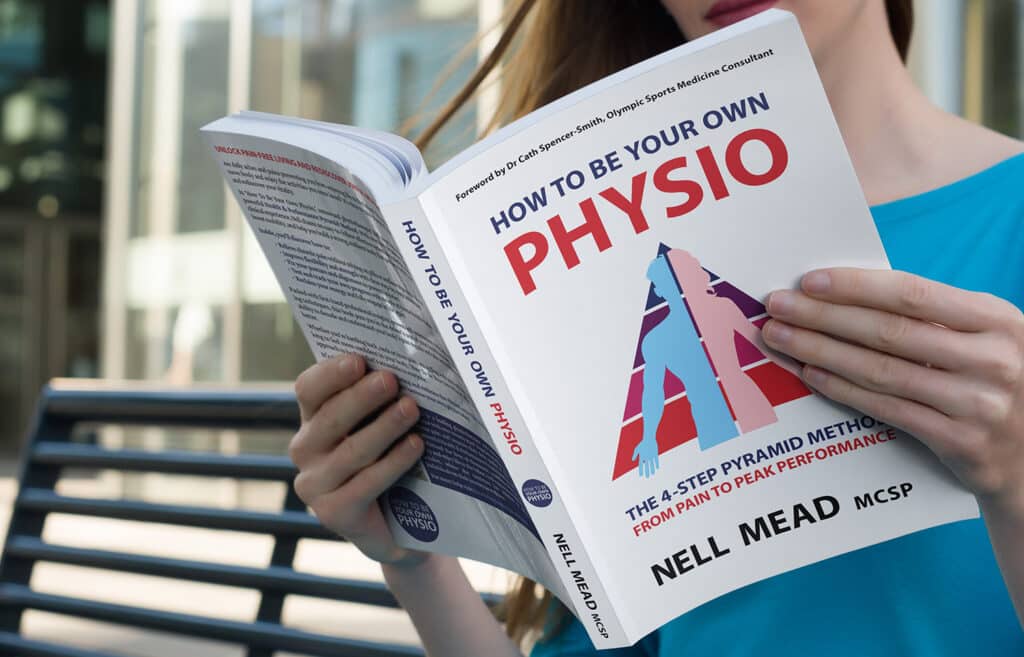This and the next two posts have been written by one of my patients, A, who recently underwent abdominal surgery. She’s written them in order to help others going through the same process and I am keen to help her spread the word. Over to A….
Disclaimer: Throughout my story, I will mention products, people and services. I have no relationship with any of them and will not benefit in any way if you use them. Nothing in my blog constitutes medical advice. I am merely sharing my thoughts, ideas and lived experiences.
Preparing for Surgery
I am a retired athlete and a screenwriter. Here’s the story of how I used my experience from sport and film to prepare for major surgery and successful recovery.
The COVID-19 pandemic
My surgery came a bit unexpectedly. There were no indications from my private annual health screening in 2018 that I had a fibroid in my uterus. I had no symptoms, and fibroids are incredibly common in women, with two in three women developing them at some point in their lives. In July 2021, I braced myself for a hospital visit during the pandemic to have my scan. The image showed a 10 cm long fibroid. I knew I would need surgery at some point; I just didn’t want to have surgery during the pandemic. So, I waited until January 2023.
Getting fit again
I have long retired from competitive sport and find it hard to get myself motivated again. I tell myself, I’m a writer now; I’ve done my bit in sport, and while I’m not necessarily unfit, I’m no longer super fit. I just can’t get excited about getting on a treadmill, and I’m quite happy with my leisurely swim. Why would I change now, and where would I start? You might think I should know, but the truth is, athletes become coach-dependent, relying on their coach to tell them how to train.
So, I make an appointment to see Dr Kush Joshi, a consultant in sport and exercise medicine, for some medical advice, and he suggests I read Daniel Lieberman’s book Exercised to get myself motivated again. I sign up for a comprehensive heart and lung stress test (CPET) with Jim Pate, the CPET Lab Manager, to measure my cardiovascular and aerobic fitness levels. Chris Allen, my fitness man, designs a four-week fitness program based on my CPET results. He also suggests I train with a Myzone fitness tracker, which allows me to track my workouts. I can’t say I’m enjoying it. My muscles ache, and it is a very long time since I’ve done any weights, but somewhere inside of me, I also know why I am doing this: I am having surgery, and I want a quick recovery.
Planning my surgery
After researching on Doctify and reading many testimonies, I decide to call and make an appointment with London Gynaecology because Mr Narendra Pisal stands out. He’s a leading expert in laparoscopic surgery, and he’s also an ultra-marathon runner. A week later, I am booked in for an MRI scan and a pre-op consultation. My surgery is booked for the 23rd of January 2023.
Writing a patient statement
The Royal College of Obstetricians & Gynaecologists and the National Institute for Health and Care Excellence both publish guidelines on various procedures, and the guidelines also suggest that patients should be given the opportunity to state their wishes in a patient statement. So, I decide to write a patient statement to explain my choice as well as my preferred option and wishes. That way I can be sure we are all on the same page.
Anaesthesia and risk
There is a risk associated with any general anaesthesia. I will be under general anaesthesia for three hours, and Nell, my physiotherapist, reassures me that modern anaesthesia is very safe. If you would like to find out more about the risk involved, the Royal College of Anaesthetists explains the main risks on their website.
They also explain that fitness and nutrition can help speed up your recovery. They even have a section on how you can prepare your mind and feel more positive. They not only publish interesting guidelines for safe surgery, but they also have a leaflet called Fitter Better Sooner that explains how you can improve your health. If you’re still not convinced, have a look at this recent Fit For Surgery paper which looks at the relationship between your cardiorespiratory fitness levels and postoperative outcome. Figure 10 shows how fitness is the single most important risk factor.
Nutrition and Nell’s Lymphatic Mojo
If you, like me, had never had one of Nell’s Lymphatic Mojo sessions, your lymph nodes are likely to be clogged up. Nell explains how our bodies create more waste when we are injured or have surgery. And since the lymphatic system has no self-pumping action, it relies on us being active so that the surrounding muscles can push the waste fluid through. I also make sure I eat well, get enough sleep and take extra vitamin D3 and vitamin K2. I also order a tub of Lean Greens powder, which will help with extra nutrition post-surgery. [ED – please contact admin@nellmead.com for discounts on both Nutri Advanced and Lean Greens supplements!)
Friends and family
They can be wonderful source of support, but they can also cause stress. So, I carefully choose whom I want to tell about my forthcoming surgery. I ask myself: Is this person going to be supportive, or are they going to drain my energy and share their drama that requires moderating? First up is my husband; let’s call him Tech Man. I know I can rely on him. He’s cool and takes things in his stride. His mind is very practical, and the first thing he asks is, ‘When is the surgery scheduled for?’ He also knows how meticulous I am with selecting the right people, so he knows he doesn’t have to worry. Next, is my friend from Iceland. I know she can handle this. ‘I know you will be fine’, is her response. The only other two people who know are Nell and Chris.
With my mum, I change my mind at the last minute. She calls me to wish me a happy birthday. Living in Germany, she tells me that the news sounds terrible with all the strikes that are happening in the UK. ‘Now is not the time you want to end up in hospital with all the nurses and ambulances striking in London’, she says. ‘Don’t worry mum; we are all fine here’, I reply. I simply don’t have the extra energy to manage her worries and respond to all the emails and text messages that will no doubt follow if she knows what’s going on. So, I don’t tell my mum. I don’t feel guilty because I am taking care of my mind. After all, I am the one who is facing surgery, not my mum. If you have colleagues at work, there’s nothing wrong with saying: ‘Do you mind if we talk about it when I return from surgery? Right now, I am trying to stay positive.’ Stand your ground. It’s your surgery, and managing other people’s worries and anxiety only adds to your burden.
Faith
This is a very personal thing, and it is not about finding your religion but having something that can anchor you. Some meditate; others do yoga; I pray. It’s connecting with something bigger than ourselves. If you don’t believe in anything, simply accept. Accept the challenges that life presents. We all have positive moments in our lives and some moments we’d rather not have. Accept that you’re having surgery. Acceptance brings peace. Acceptance means engaging in the process, not avoiding it or wishing I didn’t have to have surgery.
Spiritual fitness
Human Performance Resources by CHAMP (HPRC) is a team of scientists and specialists who translate research into evidence-based resources to support Service Members and their families. On their website you will find a checklist which might give you some inspiration for spiritual fitness. In a very simple way, it looks at what we sometimes must accept and where we can take action? While it was written for Service Members in the army, I found it a very insightful website for everyone facing a challenge.
Emails and admin
My inbox starts filling up with emails for appointments, authorisation codes, reports and results. The paperwork can feel overwhelming, so I create a folder with dividers: Admission, Anaesthetist, Consultants Reports, Cigna, MRI Scans, Patient Statement, Pre-Assessment Appointment and Physio. This helps me to keep on top of everything. I also have a spreadsheet with all the appointments, authorisation codes and invoices split 80/20 (insurance/self-pay) so that I know what I have paid and how much is outstanding. There are a lot of emails, and they keep coming. I didn’t expect this, but having a structured approach helps me stay calm and in control.
The week and day before my surgery
A week before my surgery, I have a pre-op appointment for a quick check-up at the London Clinic. Mr Pisal’s nurse also calls me to check in, and I’ve prepared a list of questions. I also see Nell for a last pre-op check. She gives me breathing exercises and a few tips, such as what to do when I need to cough and how to use a cushion to support my abdomen. She’s my rock, and I am really glad I have her for some extra pre-surgery coaching. Her positive energy helps keep me focused and reassured.
The Sunday before surgery, I buy a big bunch of flowers to cheer myself up for when I come home from hospital. I know that Tech Man is quite busy with big business negotiations. In a way, I’m glad he’s busy. The last thing I want is someone asking me how I’m feeling. My thoughts are a strange mix of Let’s not talk about it and keep my mind positive. At the end of the day, nobody else can do this for me. Nobody else can walk the journey for me.







